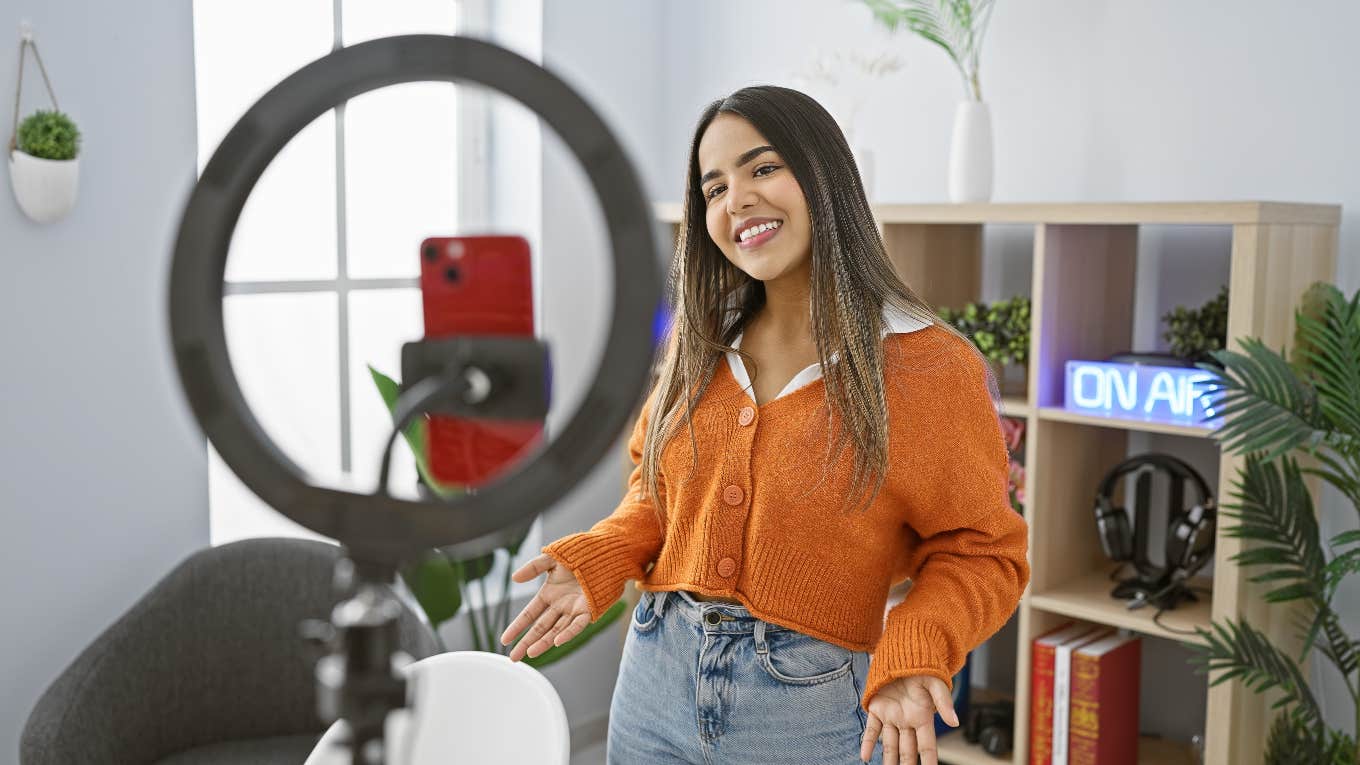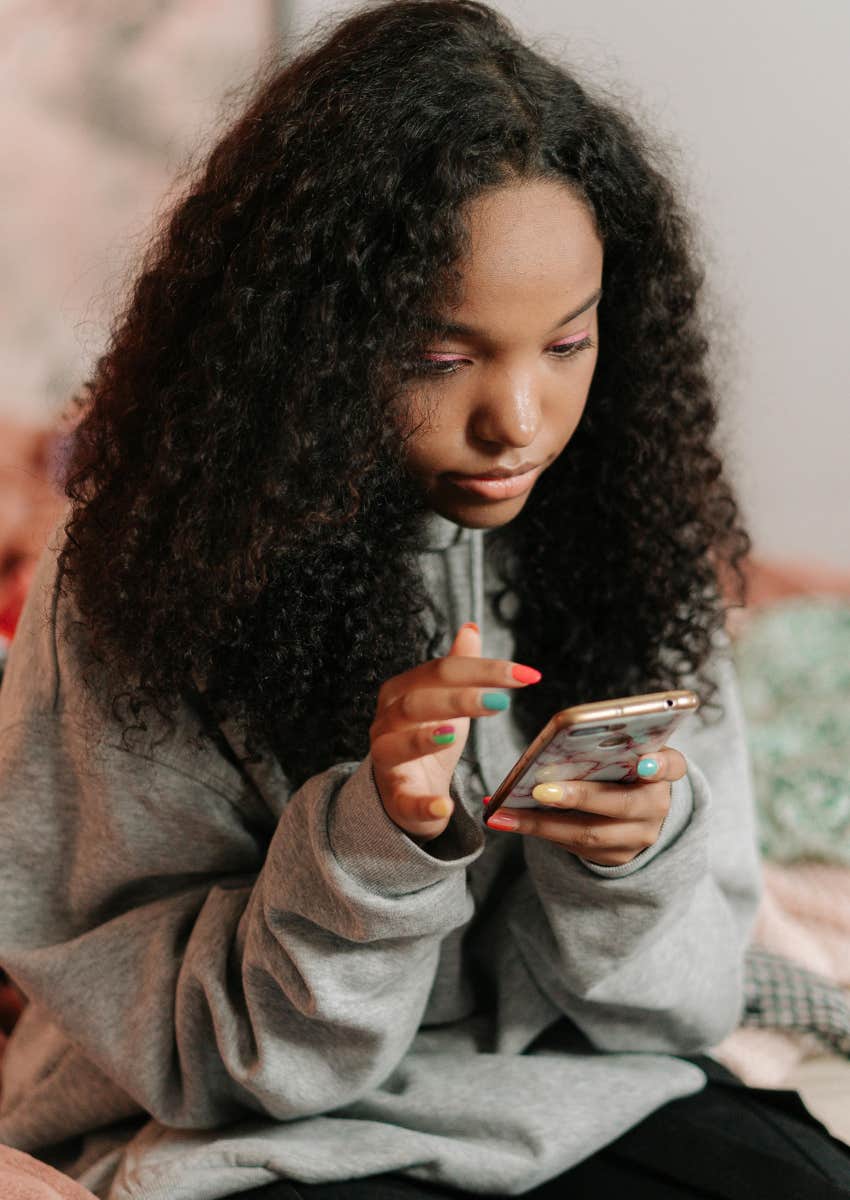Should Social Media Influencers Have To Be Qualified To Talk About Certain Topics?
China is taking steps to stop the spread of misinformation on social media, and some people think other countries should follow suit.
 Krakenimages.com | Shutterstock
Krakenimages.com | Shutterstock We’ve all scrolled through TikTok or Instagram before when we’ve come across a post that’s completely ridiculous. Whether it’s related to politics, health, or another topic, there’s no question that it’s the very definition of fake news and should be disregarded entirely. But does that mean the people who post said absurdity should be denied that right? It's a slippery slope.
There’s no question that there’s a lot of information on social media that is presented as the truth when it is, in fact, false. Usually, it’s pretty easy to determine what is being shared that isn’t true, but sometimes it can be tricky. Some people are more susceptible to this disinformation as well, but the same goes for slimy used car salespeople. At what point is it buyer beware, and at what point should things be regulated?
China has passed a law requiring influencers to hold certifications for certain topics.
Instead of letting Chinese citizens wade through various posts on social media and figure out what’s legit for themselves, the Chinese government passed a new law that requires influencers to actually be certified to talk about whatever it is they’re saying, per CNBC.
Dylan Page, the TikToker behind News Daddy, shared some information about the new policy. “So, for example, if you are creating content around what they deem as a sensitive topic — we’re talking finance, medicine, law, or education — you must prove that you are formally educated in that field,” he said. “So, like a degree or a diploma.”
Apparently, it’s up to social media platforms to enforce the new law, according to Page. CNBC reported that, in addition to needing to prove they are qualified to talk about a certain topic, influencers also cannot share anything that goes against the Chinese Communist Party or is an AI “deep fake.”
Of course, the first question on everyone’s mind is whether or not this kind of law will spread to other countries.
Opinions varied pretty broadly depending on what platform users shared them on. For example, someone shared the news on Reddit and asked if the U.S. should adopt a similar policy. The response was an overwhelming no, with a few maybes mixed in.
One commenter said, “I’m not really interested in having the government decide who’s allowed to have an opinion about things. Or who’s allowed to say their opinions out loud. I’d much rather have people I don’t agree with being allowed to speak freely than having people just be silenced by the government.”
The comments on Page’s TikTok told a different story, though. “Fair enough, no misinformation,” one person said. “Those arguing are obviously not qualified,” added another. A third person commented, “I back this 100%. So many people have no idea what they’re talking about and have a big following.”
There are both pros and cons to this kind of policy.
If you look at the law in the most straightforward way possible, it does seem to have some potential. As many people pointed out, there is so much misinformation on social media that influencers just keep resharing. Getting those falsehoods presented as facts off the internet could create a better-educated society.
 cottonbro studio | Pexels
cottonbro studio | Pexels
However, the disadvantages of this kind of law are almost overwhelming. For starters, it pretty much removes the right to freedom of speech. Not all countries have this right, of course, with China being one of them. But in the U.S., this would cause a serious constitutional problem. Who’s to say that an influencer shouldn’t share their political views just because they don’t have a political science degree?
Additionally, how long would it take for this kind of law to turn into censorship? In China, there’s a pretty good chance that’s exactly what this is supposed to be, but what about countries that don’t censor their citizens? If laws like this were to pass elsewhere, it probably wouldn’t be very long before they were used as a form of censorship instead of a way to prevent misinformation from spreading. And who decides what is actually misinformation to begin with?
Perhaps we should all remember the wisdom of Benjamin Franklin, who once said, “If all printers were determined not to print anything till they were sure it would offend nobody, there would be very little printed.”
Mary-Faith Martinez is a writer with a bachelor’s degree in English and Journalism who covers news, psychology, lifestyle, and human interest topics.

